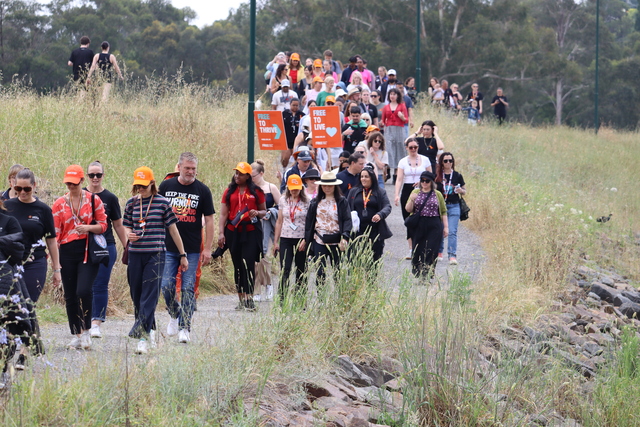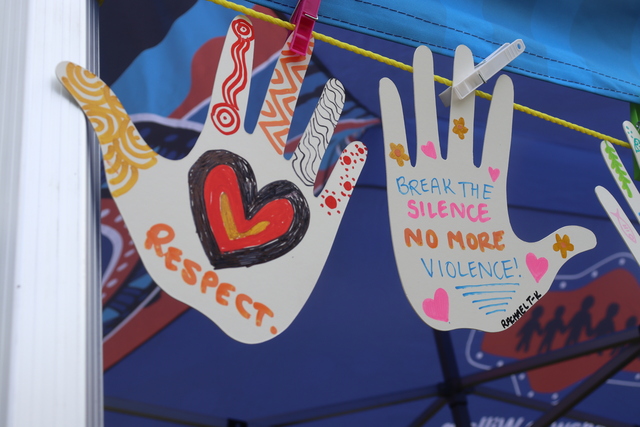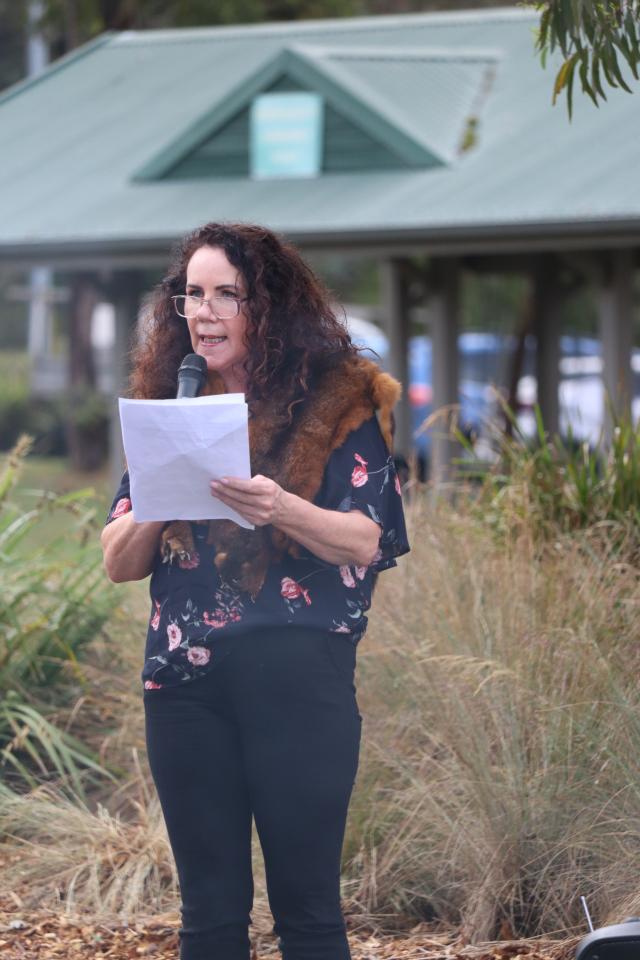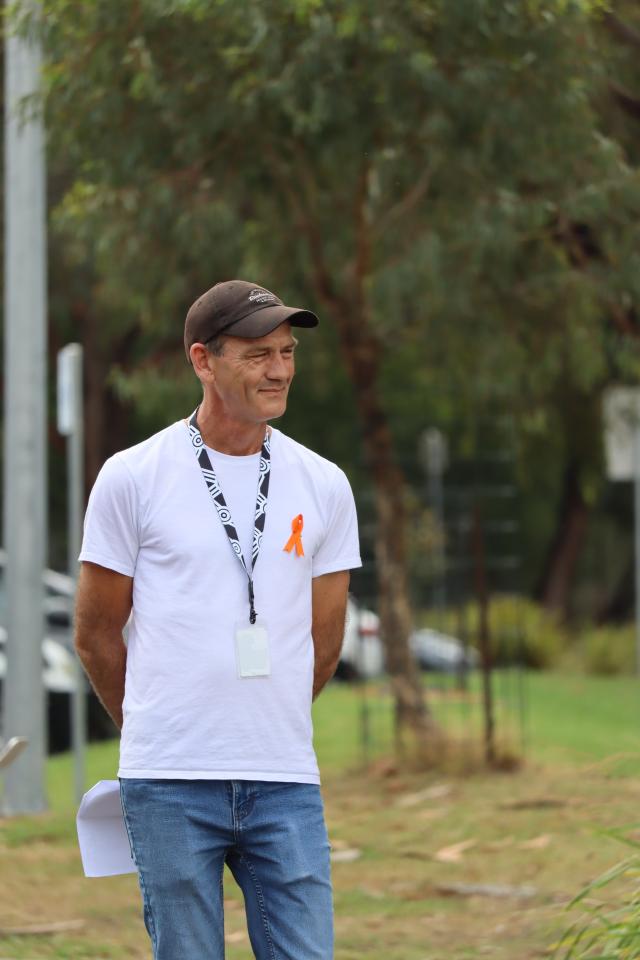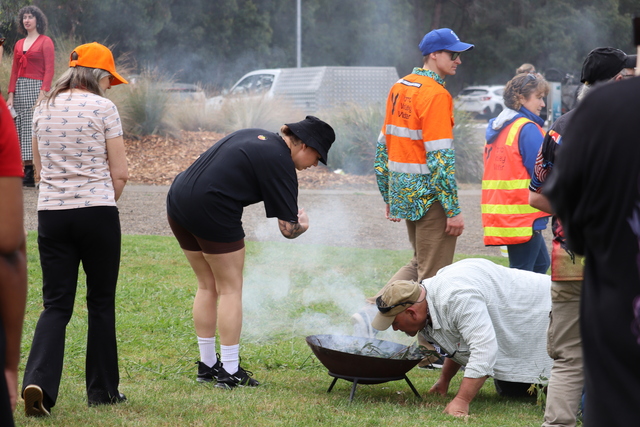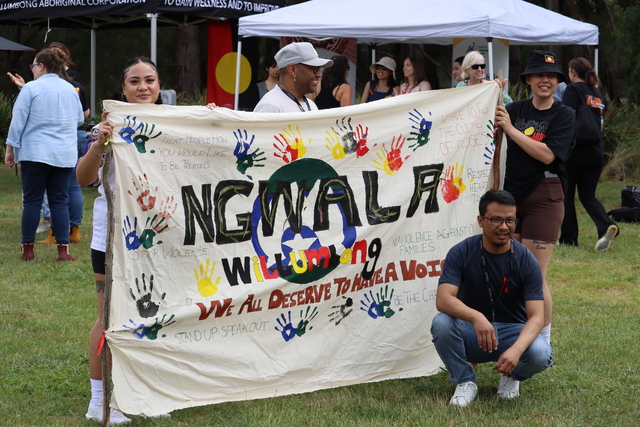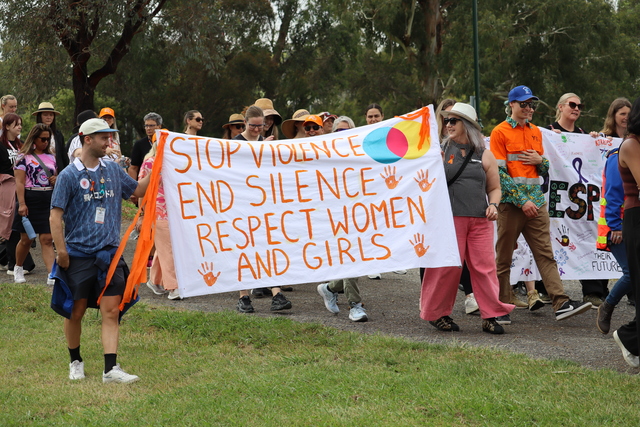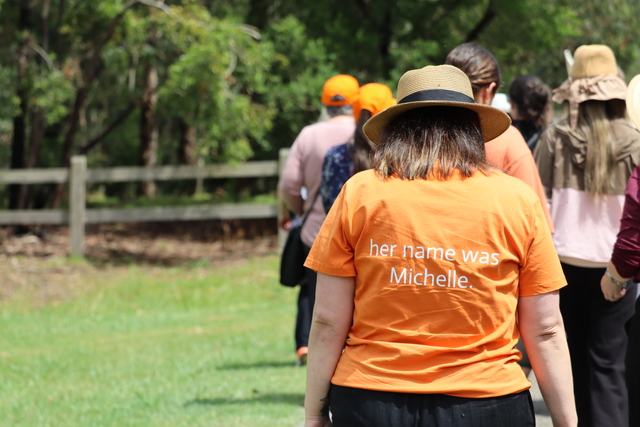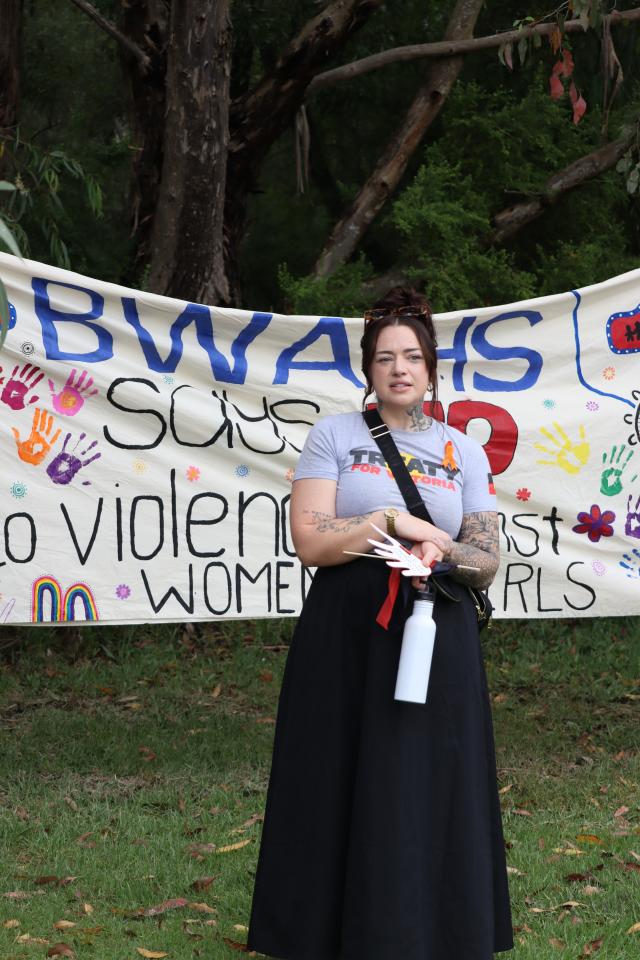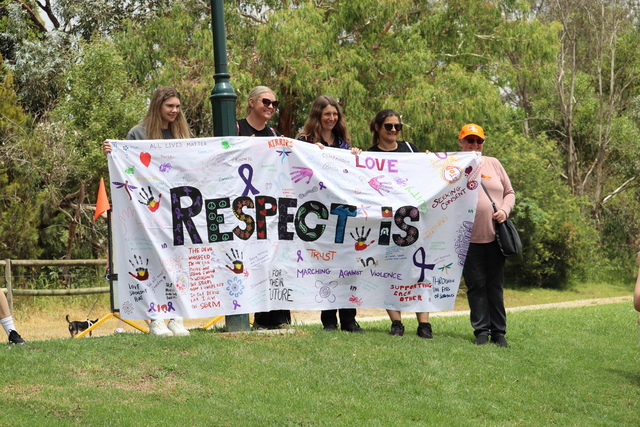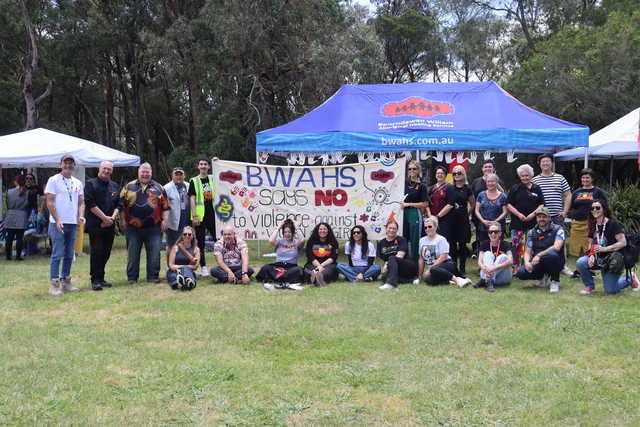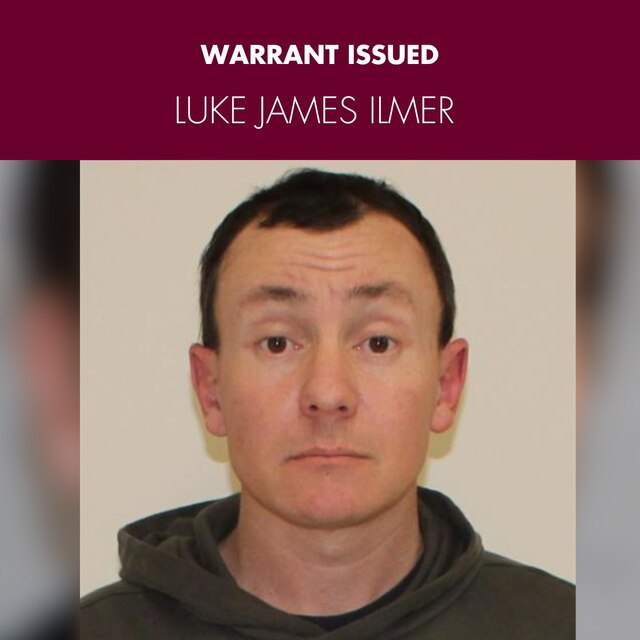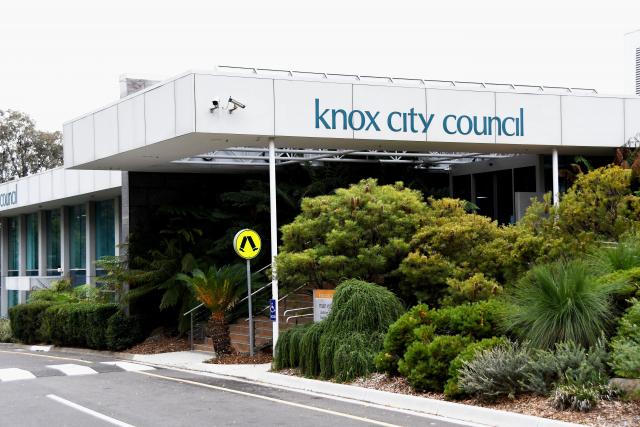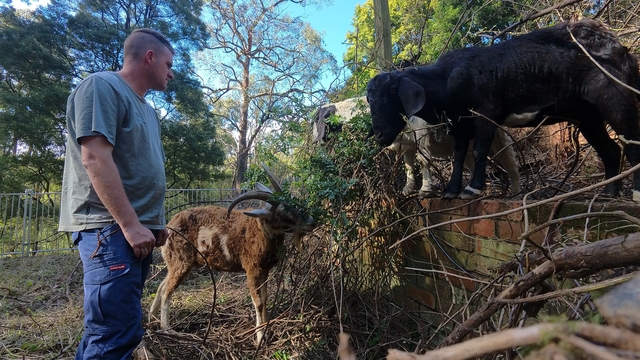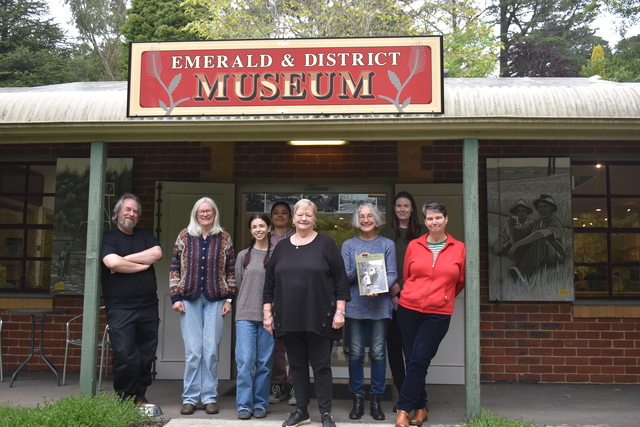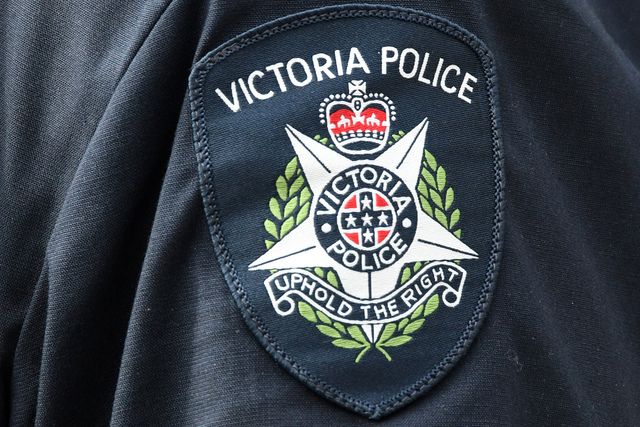Universal support for ending gender-based violence flooded Lillydale Lake on Tuesday 26 November as the community walked for awareness.
The second annual Walk Against Family Violence organised by Boorndawan Willam Aboriginal Healing Service (BWAHS) was a sign of solidarity and unity as it and services from the east continue to fight for better.
Proud Wurundjeri-Wilam woman Julie Coombes led the Welcome to Country, setting the tone of the walk, one based on respect, reflection and togetherness.
“Today’s walk is a significant time for us to reflect as we mark the 16 Days of Activism Against Gender-based Violence to raise awareness,” she said.
“Many here today stand in agreement with victim survivors, and this walk is not only to raise awareness but to build a community that is safe for all, where everyone is treated equally and respected.
“We gather here today as a powerful voice for change, and we promise to continue to advocate for those who have been oppressed and continue to push for change within the various sectors. Violence can be prevented if we choose to change the culture, educate the mindset, shift the attitudes and the behaviors that allow it to happen.”
BWAHS chief executive officer Adam Frogley said it was under the awful circumstance of women killed by violence in Australia that brought 150 people from the community together.
“One woman is killed every 11 days, and one man is killed every 91 days. It’s not acceptable,” he said.
“We need to stand up as a community and make sure we’re putting our best foot forward, if we can use that term, to ensure that family violence remains a very high focus particularly for government, and to ensure we’ve got the ability and the resources to do the jobs we do working with community.”
Walking 560 metres to the first stop, Mr Frogley said it was representative of the estimated 56 women killed by family violence this year.
“In other spaces, you would hear that that was someone’s daughter, wife, sister or mother, and all of that is true, but they’re also the woman from your neighborhood who could grow the best tree, who was always kind, that lit up a room with her smile,” he said.
“Who fought all of her life, a warrior to the end. Someone who could have cured cancer, taught others to read, a role model for her community…she should have been safe.”
Pausing for a minute of silence to remember the women “they should have become”, the walk continued to the next speaking post, where Mr Frogley highlighted the importance of men being supported too.
“We’re trying to end gender-based family violence, domestic violence, and that involves two parties, not just the women and the children, but also the men who, in some cases, can be the perpetrators.
“The work that Boorndawan does through our Men’s Shed looks to assist and support men who are perpetrators and have committed domestic violence against family and other community members.
“Working with our men is very, very important. It’s absolutely vital. We know we can bring back culture, bring back language, and become strong for our men again, and men that look after our families and support our families and look after our children. Let’s make sure we work with our men and get a better community as a result.”
BWAHS’s Bayswater site is dedicated to supporting women and children affected by violence through family services, intensive case management, to support women leaving violence or safely staying in violence, therapeutic services, family therapy and women’s groups.
It is also a safe location for a confidential chat, whether about the individual themselves or someone who has witnessed something in community.
The walk also acted as the launch of a petition calling on the Federal and State Governments to prioritise support for victims and perpetrators, to implement a national Royal Commission into family and gendered violence, with a particular focus on Aboriginal and Torres Strait Islander communities, and to provide appropriate ongoing funding and support.
“Our vision and goal is to end family and domestic violence in Australia and in Aboriginal and Torres Strait Island communities, and we must do it now,” Mr Frogley said.
“In Aboriginal and Torres Strait Islander communities, 67 per cent of community members over the age of 15 have experienced physical harm in the last 12 months, and over 72 per cent of assault hospitalisations involving Aboriginal and Torres Strait Islander people were due to family violence.
“The impacts of colonisation continue to this day. The loss of culture, language and connection is being expressed through family and domestic violence, lateral violence and harmful behaviors.
“Aboriginal people and our communities demand that the government at all levels, not just the federal, not just the state, not just the local, all levels work to end family and domestic violence in Aboriginal communities and across Australia.”
BWAHS training and education lead Jo Ratten said it was incredible to see such a crowd turn up in support of the same goal and the hope is the Lilydale event can only grow next year.
“It’s just really important for us to bring our entire organisation together and also bring along our clients, along with all other service providers, just to ensure we can continue to work towards eliminating violence within the home, within all aspects of life,” she said.
“And that’s why we want to continue to grow this event and hopefully continue to invite school groups and younger generations to actually understand how important this work is and that it is everybody’s responsibility to start to try and stamp out violence.”
Day-to-day and outside of major events like the Walk Against Family Violence, Ms Ratten said education was the key to making a difference.
“It’s about educating our younger generation. It’s about educating people to speak up if they see it and educating people to understand what it looks like, what it can present like, it doesn’t always present the same and just continuing to educate ourselves,” she said.
BWAHS was supported by Ngwala Willumbong Aboriginal Corporation, the Victorian Aboriginal Child Care Agency, Oonah Belonging Place, Mullum Mullam Indigenous Gathering Place, Victoria Police, Eastern Community Legal Centre, St John Ambulance and many more local services.

